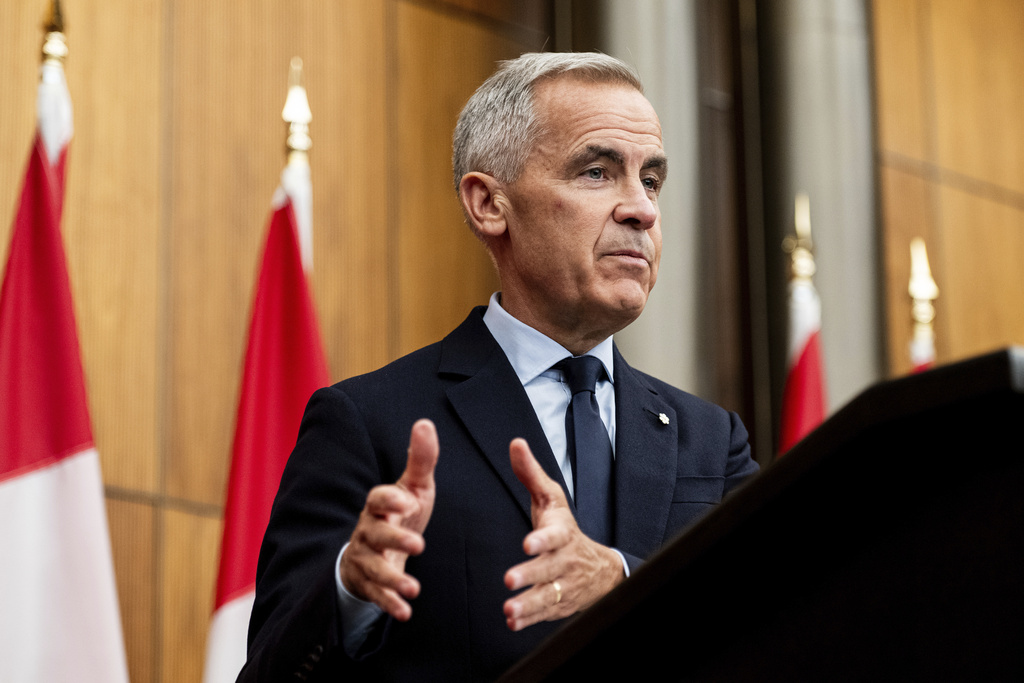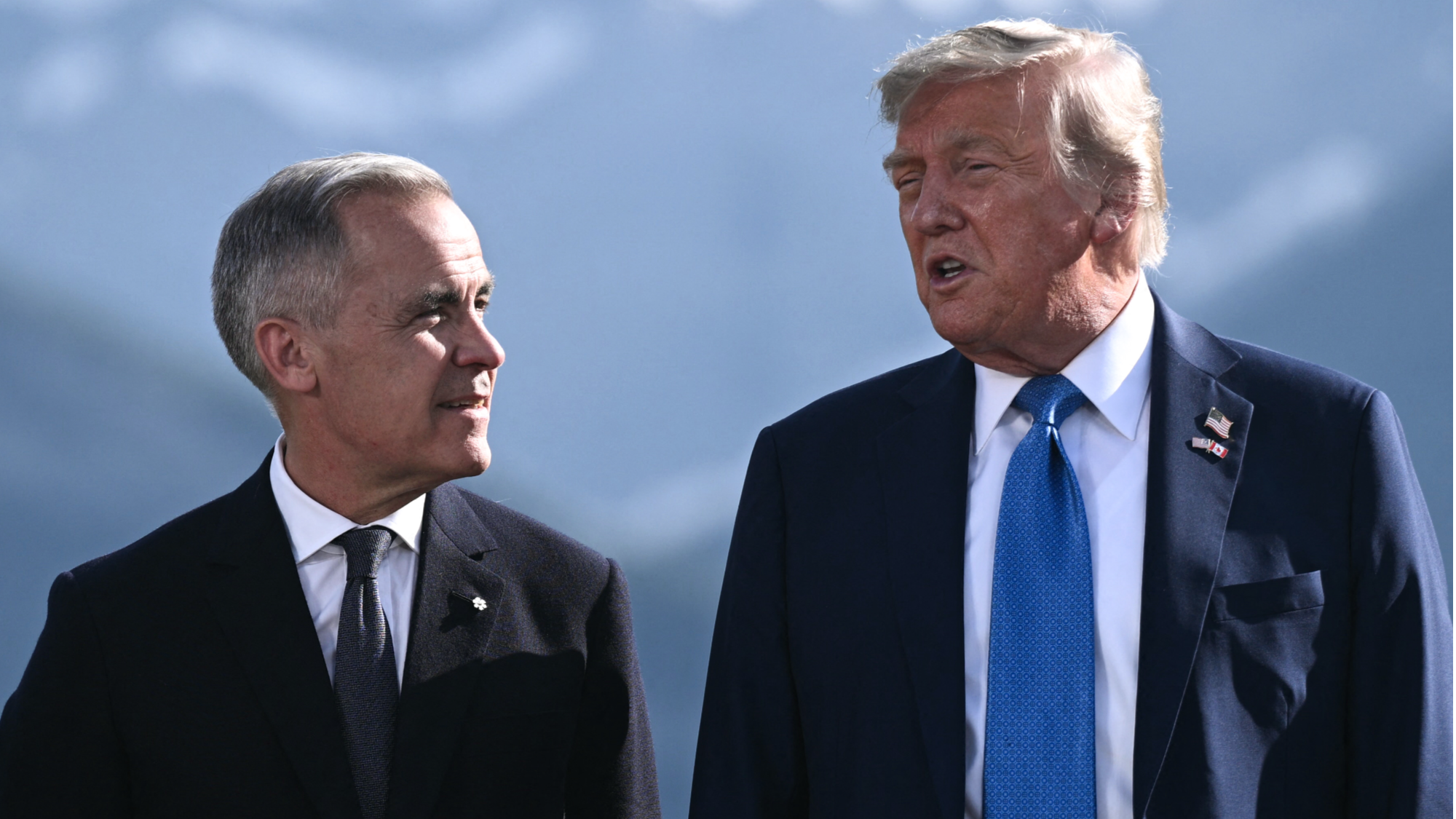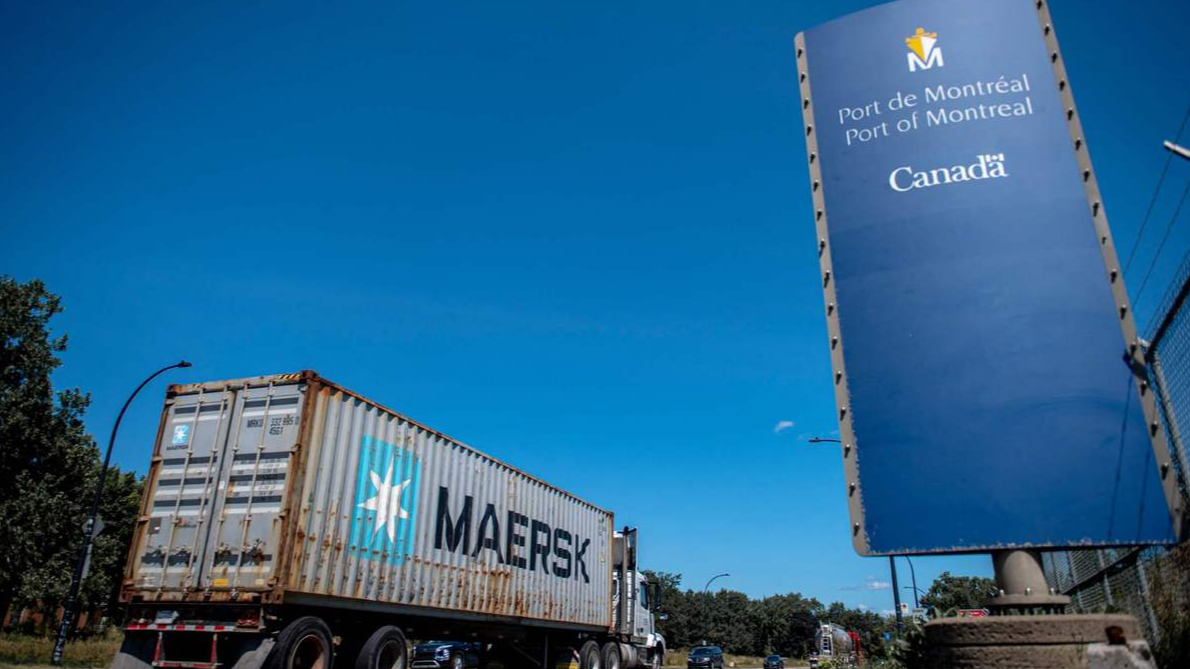
OTTAWA - Canada will remove many retaliatory import tariffs on US goods and intensify talks with the United States on striking a new trade and security relationship, Prime Minister Mark Carney said on Friday.
Canadian tariffs on US autos, steel and aluminum will remain for now, he told a press conference.
Carney noted that the United States had recently made clear that it would not impose tariffs on Canadian goods that were compliant with the three-nation US-Mexico-Canada free trade agreement, something he called a positive development.
"In this context and consistent with Canada's commitment to USMCA, I am announcing today that the Canadian government will now match the United States by removing all of Canada's tariffs on US goods specifically covered under USMCA," he said.
"Canada and the US have now re-established free trade for the vast majority of our goods," he added, reiterating that compared with its trading partners, Canadian exports were still subject overall to a low level of US tariffs.
The news helped the Canadian dollar extend its gains.
Canada has been holding talks with the United States on a new economic and security relationship for months but the two sides are not close to a deal.

Carney spoke to Donald Trump on Thursday. Asked whether the US president had told him that lifting the tariffs would kick-start the talks, Carney responded "Yes".
Trump, when asked about Carney's decision to remove tariffs, called it a "nice thing" while addressing journalists in the Oval Office.
"We are working on something. We want to be very good to Canada. I like Carney a lot," he said.
ALSO READ: Carney says he’ll look at opportunities to remove tariffs on US
Carney won an April election promising to stand up to Trump's tariffs but since then has gradually taken a softer tone.
Carney scrapped a proposed digital services tax in late June that US companies strongly disliked and in July dropped talk of further sanctions if the two sides could not reach a deal by Aug 1.
He also held steady on tariffs on steel and aluminum products imported from the United States at 25 percent when Trump increased tariffs on steel and aluminum from Canada to 50 percent.
Carney's predecessor as prime minister, Justin Trudeau, imposed 25 percent tariffs on C$30 billion ($21 billion) in goods imported annually from the United States on March 6 in response to Trump's initial duties.
The C$30 billion was part of an overall retaliation plan to target C$155 billion worth of imported goods from the United States, though the remaining C$125 billion has been delayed.
However, despite concessions, a deal with the United States could be a far cry, a former government official said.
"Getting to a final deal isn't going to be easy. The list of US demands is long," said Brian Clow, who was in charge of US relations inside Trudeau's office for several years.

Moderate approach
Carney said the time had come for a more moderate approach rather than continuing to take an aggressive stance.
"Let's be clear, we have the best deal of anyone in the world right now," he said. "Nobody has a deal with the United States that they used to have."
Carney said Canada will primarily focus on strategic sectors that are still facing tariffs including steel, aluminum, autos and lumber, as well as on the review of the free trade USMCA deal, called CUSMA in Canada.
The USMCA officially comes up for review in July 2026, six years after it entered force on July 1, 2020.
Carney said the review is likely to start in the spring but preparations will begin shortly.
Business leaders have called on the government to focus on getting a solid deal under the USMCA free trade agreement as this pact has been critical in protecting Canadian companies and the economy from broader tariffs.
"While there is more work to be done to resolve tariffs in strategic sectors, Canada's priority must be the successful review and renewal of the US-Mexico-Canada Agreement," said Goldy Hyder, president and CEO of the Business Council of Canada.
The news could be a political challenge for Carney, whose ruling Liberals only have a minority of seats in the House of Commons elected chamber and rely on opposition parties to survive votes of confidence.
READ MORE: Trump puts 35% tariff on Canada, eyes 15%-20% tariffs for others
The leader of the Conservatives, the largest opposition party, this week accused Carney of taking too soft an approach with the United States.


